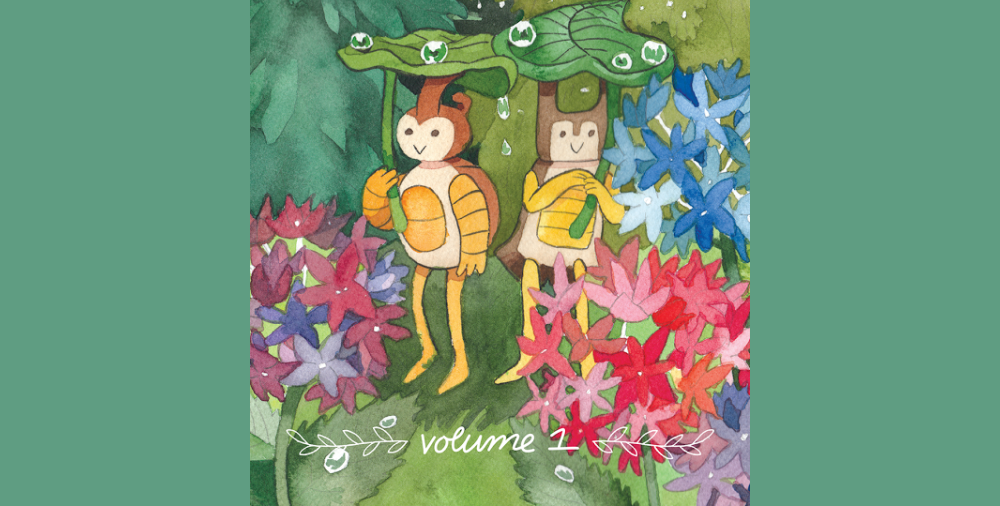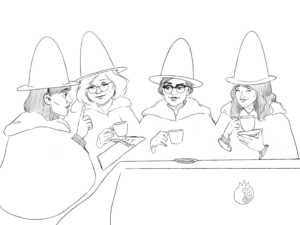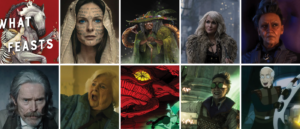It can be easy for me to forget that sometimes cartoons should be for children. The irony is obvious but I hope it’s also understandable. It was only recently that cartoonists and comics enthusiasts had to daily defend the medium’s validity. I still see reviews in larger publications (with the books delicately labeled as “graphic novels”) where the writer feels compelled to remind us that “comics aren’t just for kids anymore”. Given these palpable anxieties, developing a selective blindness made sense. There’s so much exciting work being created these days with adult tastes in mind that it was easy to narrow my focus and forget the traditional connection between cartoons and kids. Yet we shouldn’t forget that a happy hybrid of pictures and words is well-suited for young minds and we especially shouldn’t forget that children, as much as anyone else, deserve quality in their media. For these reasons, it was a pleasant surprise to find a book like Laura Knetzger’s all-ages Bug Boys at this past October’s Short Run, right next to more maturely-themed comics like the autobiographical Sea Urchin.
Bug Boys follows the day-to-day adventures of two loosely-anthropomorphized beetles, Rhino B and Stag B, as they explore their home (the idyllic Bug Village) and their burgeoning senses of self. Typical stories in this series involve the beetles wandering through the woods, meeting new bugs or participating in communal village events. The tone is light and the drawings are cute, but Knetzeger’s simple stories belie a deep, inward focus. Even when the beetles go on more traditional adventures (like getting trapped in an underground cave or brokering peace between the queendoms of termites and honeybees), the real struggles here are invisible and internal, taking place within the fluctuating social space that attracts us to and repels us from each other.
The beetles are goofballs but they are not just comedic, one-note wind-up dolls, nor does Knetzger shy away from the expression of negative emotions. Youthful exuberance is tempered with fear about the future and loving friendships rock with short, strange quarrels like any real relationship. This emotional resonance, above its humor and charm, is the book’s true strength.
“I think your mind is a world… and physical places are worlds,” Rhino B philosophizes after a trip to the beach, “But the world of a mind isn’t small. It could be bigger than a whole ocean.” This theme flows throughout Knetzger’s work, from Bug Boys into Sea Urchin, a collection of abstract autobiographical comics. In poetic fragments, Knetzger explores the ocean of her feelings without an anchoring narrative or any guide but her own conviction. Real life, of course, is not the simple, happy existence of Bug Village and Sea Urchin is darker in tone. Knetzger gives her negative thoughts room to breathe in these pages and their resolution is neither easy nor guaranteed. Sometimes, when it’s not possible, the only option is co-existence.
Knetzger’s candid writing forces her depression and self-doubt to exist side-by-side with embers of hope and sparks of artistic play (her other main strength, innovative page composition, shines bright here). Painful or joyful, it’s all real and these comics show that this inner reality matters as much as the author’s physical circumstances.
This belief in, and sensitivity to, the importance of anyone’s inner struggle is what allows Knetzger to make comics which can resonate with both adults and children. Her work shows that there’s no real conflict between Art and Kids. Children, just like adults, have rich, messy inner lives and a deep need for self-expression. As Rhino B says in another story, “It’s like a magic spell. When you say how you really feel you change inside.” And when you share that feeling with someone else, they can change too.
Sea Urchin is available for purchase at Retrofit Comics and Bug Boys is available over at Czap Books. You can also follow Knetzger’s work on her personal website.
All images in this article via Laura Knetzger‘s Bug Boys and Sea Urchin.







